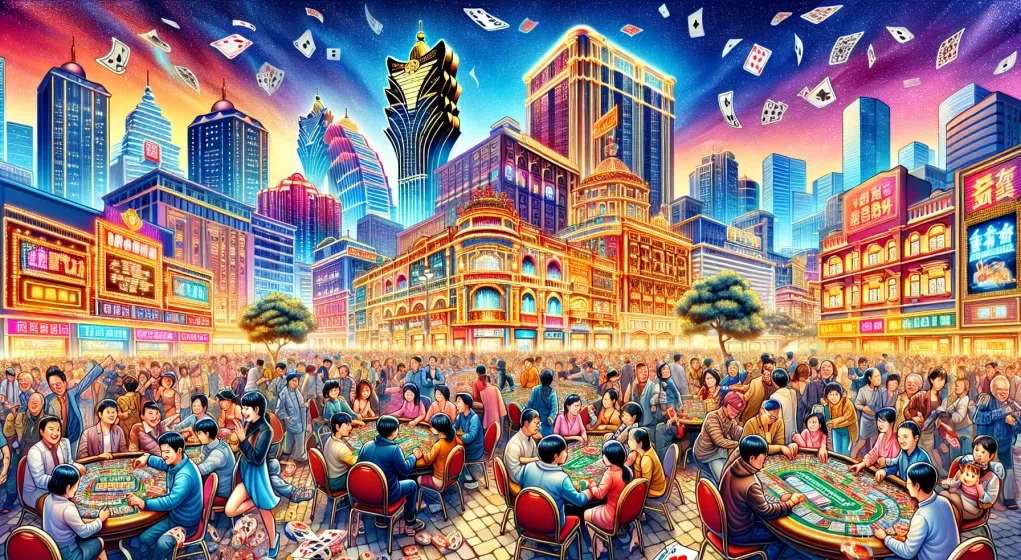Beneath the glittering lights and chiming slot machines, the tales of fortunes won and lost whisper among the hallowed halls where high rollers stake their claims. It is here, in the vibrant city of Macau, where the tides of fortune have crowned a new king of the gambling world, silently usurping the long-standing champ, the desert mirage of Las Vegas, which now bows in deference to its eastern successor.
Macau’s coronation occurred in the shadow of 2006 when this sparkling enclave, nestled on the coast near Hong Kong, dazzled the globe by eclipsing Sin City in annual gross gambling revenue for the initial time. The city, a meager 12.7 square mile former Portuguese colony, swathed in a rich history and returned to Chinese oversight in 1999, has been the stage upon which this economic drama unfolded.
In this enclave of excitement, casino taxes funnel into the veins of local government, comprising over 80% of its revenue stream. This infusion of capital has been propelled by the staggering influx brought by opulent complexes established by titans of industry. Names like Las Vegas Sands, which, despite its steadfast moniker, committed wholly to its operations in Macau and Singapore following the late Sheldon Adelson’s departure.
Indeed, Macau’s allure is undeniable, quite beyond its picturesque vistas and colonial charm. As the sole bastion in China where the turn of the card and the roll of the dice are permitted by the powers that be, the region’s special administrative status has permitted the unfurling of what many have likened to the new Wild West of casino development.
Luxury hotels bloom like the ubiquitous lotus across the city, alongside sprawling casinos and private VIP lodgings, all collectively built on a foundation of a $20 billion investment. These have been strategically designed to entice the mainland Chinese, for whom the thrill of the gamble is seemingly an intrinsic part of their DNA, despite average incomes that would suggest otherwise.
Yet this thriving microcosm did not emerge unscathed from the global challenge that was the COVID-19 pandemic. With Beijing’s ironclad “zero COVID” policy, Macau’s lifeblood — the influx of eager tourists — was stifled, leading to an unprecedented plummet in revenues from $36 billion to a stark $7.56 billion. Las Vegas, though also bruised by the pandemic, momentarily regained its crown, though it was a pyrrhic victory born of Macau’s forced isolation.
Restoration, however, is a relentless force. With the lifting of travel restrictions and quarantine mandates, the tide has shifted once more. As of mid-2023, Macau’s coffers are swelling anew, with gross gambling revenues rivaling ancient floods of fortune, soundly beating Las Vegas’ own gains and marking a reclamation of its throne.
And so it is, within the bustling streets of Macau, amongst the clatter of chips and the swish of silken gowns, a legacy continues to be penned. The world watches, rapt, as the city returns to form, a titan amongst titans in the cosmic dance of chance — a spectacle worthy of the pens and lenses that capture history in the making.






